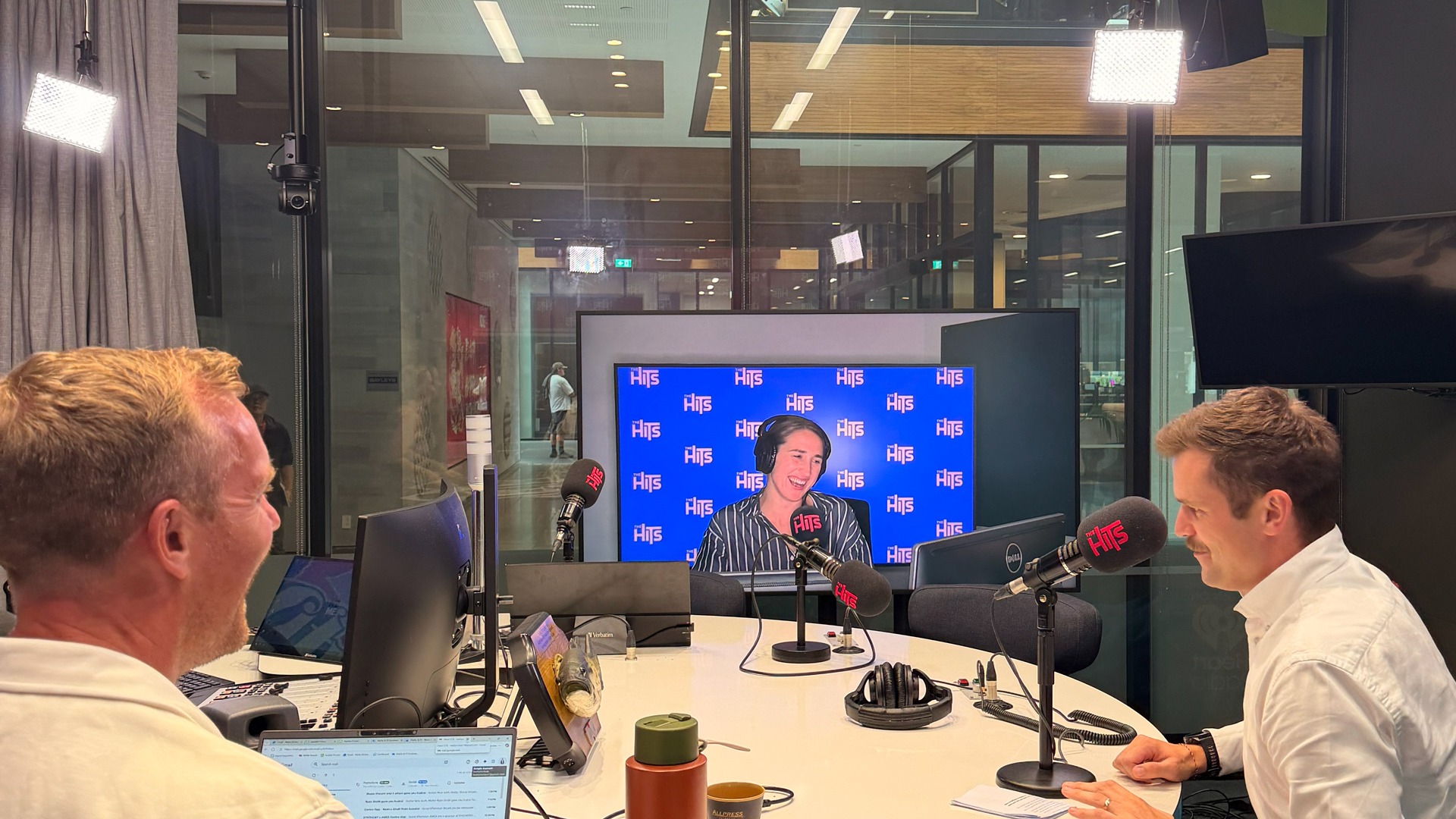America has voted, and the world now prepares for a Republican presidency. What will a Trump-led government mean for investments here in New Zealand? Milford’s Frances Sweetman talks with Ryan Bridge about initial market reaction, the impact for New Zealand, and what it could mean for your KiwiSaver money.
Listen.
Click here to download the MP3 file or listen to the podcast on your favourite platform:
Read.
Bridge talks Business: 6 November 2024
Episode Transcript
Ryan Bridge
Kia ora, welcome to Episode 13 of Bridge Talks Business with Milford. It is great to have your company. Don’t forget to like, subscribe, and follow us on whatever social media platforms that you are following or wherever you like to listen to your podcasts. This week, a big week, the worlds of politics and business have collided and markets have responded to the US election. Of course, results are still being counted and will be for some time, but markets are digesting that information. And we’re going to speak to Frances Sweetman from Milford for her take on the markets take. That’s coming up shortly, but first, here’s your top five business bits from the past seven days.
1. Trump is back in the White House, but with more powerful Republicans flipping the Senate and likely retaining control of the House as well, the margins here are significant for getting policy through. So that will affect markets and watch this space for more on that.
2. US share markets rallied off the back of this news, bonds fell and the US dollar rose sharply.
3. Last week inflation stalled and its downward trajectory towards the Federal Reserve target, and data showed continued strength in the US economy.
4. The UK budget surprised markets – bigger than expected on both sides of the ledger, more spending and more taxes. The pound weakened as a result of that.
5. We’re waiting on the next Fed rate count decision from the US Federal Reserve since the decision to cut by half a percent last time. Growth and inflation have surprised positively. So how will Chairman Powell justify more rate cuts going forward?
So a big change at the top for American politics and not only a big change for politics but the American economy, the largest economy in the world and that means it affects all of us right around the world. This decision will be reverberating. So what does it mean for the markets? What does it mean for us? Let’s find out. Milford’s Frances Sweetman is back on the show. It’s great to have you back, Frances. Welcome back.
Frances Sweetman
Thanks, Ryan.
Ryan Bridge
Great to see you. And just a mention that this interview is informational only and should not be considered financial advice. Frances, tell me, how have the markets reacted initially to this?
Frances Sweetman
The reaction was relatively muted. It wasn’t as big as it could have been. We think a lot of this outcome was already priced by financial markets but, still there was some reaction. So the US share market was up. Trump’s great for the domestic US economy, particularly those companies that are more cyclical and so they performed really strongly. The other thing that was interesting was that bond markets or interest rates were all higher and that’s because Trump’s policies are expected to be very inflationary. So that’s going to be really interesting over the next couple of months how that plays out. And then the final two, were the US dollar was stronger, that’s that inflation piece, and European and emerging markets were all weaker and that’s the impact of tariffs.
Ryan Bridge
Yeah, let’s talk about the tariffs. So you introduce tariffs, it puts up the price of the goods that you’re buying in America. When you put up the price of goods, you get inflation and then there’s the immigration side of it too, right?
Frances Sweetman
Exactly. So tariffs are almost a direct price increase in the US and all the US companies that we’re talking to are saying that they will pass those price increases straight through to the consumer, if they can. And most of them feel like they can. So that feels like a direct inflationary hit. The other one, immigration, as you say, what that does is stop that cheap labour coming into the US and so that puts pressure on wages. Higher wages, higher prices, more inflation.
Ryan Bridge
How do we get from higher inflation to increase in the stock market?
Frances Sweetman
Great question. So, there’s a couple of puts in place. It’s interesting because there’s a few factors moving in different directions and in fact against each other. And so more than anything, we think these things will make a bit of market volatility as they play out. But back to your question. So higher inflation is good for those companies that have got pricing power. They’re able to price. Some of them even directly pass their inflation in their contracts. And so that means higher earnings. So that’s great. But for other companies, higher inflation means higher interest rates. That’s what central banks are trying to combat. They want to keep inflation really steady around that 2%. They don’t want higher inflation and that’s a big part of what they’re trying to do. So that means that higher interest rates is actually bad for some companies. Those companies that pay out lots of cash flows that compete with savings accounts and also have really long dated cash flows. Higher interest rates mean those future earnings aren’t as valuable right now. So it’s these really different moving parts.
Ryan Bridge
Obviously you said the markets were expecting that Trump would take the presidency, take the White House. I don’t think anyone was predicting that he would take the White House, win the popular vote, get the White House, flip the Senate and keep the House of Representatives, which it looks like he’s going to do. How important is that legislative side of it, him securing that power as well?
Frances Sweetman
Really important for some of his big policy implications. The key things that Trump wants to do is extend the tax cuts that are due to expire in late 2025, and he needs the Senate to pass those. So he needs a majority there to get that done. That’s really important. Then the other thing is general legislation that he’s talked about, rolling back some of the stimulus that Joe Biden put in, changes to Medicaid, which is the healthcare system in the US. All of those require Senate approval. Having a Republican majority will make a lot of that easier.
Ryan Bridge
All right, let’s talk about what this means for us in little old New Zealand. How does that affect us? How does that affect our investments?
Frances Sweetman
So there’s no direct impact on the New Zealand economy specifically, but there are a couple of indirect impacts that are really going to affect us. First of all, the stronger US dollar. That in itself means a weaker New Zealand dollar and that means more inflation from those imported goods that we are getting in. Also, global interest rates are higher. That means that indirectly New Zealand interest rates get dragged up. That does have an implication for us in terms of our rate cutting cycle and the stimulation on the economy from those lower rates that get passed through into lower mortgages. So that’s kind of important. And then I think the final one is any geopolitical risk that a Trump presidency brings. His impact on China, what’s happening with Taiwan, Ukraine. Does that make a ceasefire more likely? And also, what’s happening in the Middle East and any support he brings to ongoing conflict there. So, geopolitical risk just brings volatility to financial markets and New Zealand will feel that.
Ryan Bridge
Does that mean that we are going to have our interest rates kept higher for longer potentially?
Frances Sweetman
Potentially. I think the interest rates will take a little while to wash out. Central banks are independent and they’re data driven. They look at what’s actually happening to inflation and what’s happening in labour markets and what all the economic data is telling them. And Trump policies will take some time to affect the data and make that change. But financial markets are already starting to price. The interest rates stay higher than they were previously pricing. And so that feels like if Trump’s policies are enacted the way that he’s talking about them, feels like that’s the most natural outcome.
Ryan Bridge
While we’re on the topic, actually, though it’s not New Zealand, but the Federal Reserve in the United States, they are not going to change what their decision is going to be later this week just because Trump has won. They don’t know what his policies are yet, right?
Frances Sweetman
Exactly. And so they will wait and to see what the impact of his policies are in practice. But it’s difficult in the US because the Federal Reserve has ever been very clear about the interest rate cutting path that they’re on. But also that that is dependent on inflation continuing to track down in the way that they’re seeing it. And whereas actually in practice inflation has started to stabilise in the US and economic growth has started to stabilise as well, higher than the Federal Reserve is expecting it. So that rate cutting path is not perfectly clear anyway. And then we have new political policies potentially coming in and making that even muddier. So the Fed’s got a really difficult job ahead of it. And of course, that’s really important because the Federal Reserve sets US interest rates, which affects global interest rates. So we’re all impacted by those US Federal Reserve decisions.
Ryan Bridge
Messy things, elections, aren’t they? They really muck with the markets. Let’s talk KiwiSaver because that’s obviously something that’s front of mind for most of us. We’ve got a KiwiSaver account. We watch it closely. What effect will it have on KiwiSaver? And should we be worried about in the short term what effect it has?
Frances Sweetman
So KiwiSaver is invested in the balance of share markets and bond markets, so interest rate markets typically. So the moves that we’ve been talking about on share markets and the moves on interest rates are what will affect Kiwi Saver balances. So we expect that share markets should stay reasonably positive. We talked about US markets and how the company earnings should continue to perform OK in the US, and that is a major part of even KiwiSaver accounts here in New Zealand. So that’s really helpful. We think the outlook for bond markets is a little bit tougher now with this higher inflation, higher rates environment. So that might make those returns a little bit more muted. I talked about how we expect a bit of volatility near term as we see how all this plays out. But ultimately, the construct for KiwiSaver returns is still actually OK. So we just need to not worry about those short term moves too much and just sit back and let those returns come through.
Ryan Bridge
Interesting. Anything that Donald Trump was close to on the campaign is now doing quite well, including Tesla with Elon Musk, his net worth jumped overnight. But also Bitcoin and cryptocurrency. Donald Trump talked a lot about that, saying that he was quite in favour of it. And they’ve seen a real spike.
Frances Sweetman
Bitcoin is really interesting because on the campaign trail, Donald Trump turned really positive on Bitcoin, talked about wanting more Bitcoin mining to come to the US, talked even about potential Bitcoin reserve in the US. And also one of his big pieces of rhetoric is undoing regulation to make things easier for businesses to be able to make money, make profits, hire people and really get those business animal spirits going. So Bitcoin will benefit from all of that. But in practice, will any of that happen? It’s very difficult to see. So I think you will see volatility again in some of these areas that Trump has talked about, but whether any of it will actually get rolled out seems a little bit more difficult. A lot of red flags over Bitcoin still.
Ryan Bridge
And I mean, it’s highly volatile anyway at the best of times, isn’t it, without adding this to the mix?
Frances Sweetman
It’s a hugely risky, risky investment, if you could call it that, without a great basis in fundamentals. And it’s all regulatory driven. So any changes that Trump can make may again be unwound in the future. So I wouldn’t say it’s a change in the fundamental investment case for Bitcoin, but maybe some short term noise.
Ryan Bridge
Just before we go, obviously, there’s primary producers in New Zealand who are worried about these tariffs. What about in Australia? How is the Australian market responding to the election of President Trump?
Frances Sweetman
Yes, so tariffs are obviously important for the Australian market because they are quite correlated economically to China or they’ve got strong links with China through all the exports that they send there, particularly the iron ore and their metals and mining and natural gas into the Asian region in general. Tariffs are obviously incredibly negative for China. That makes them negative for Asia overall. So that will have an indirect impact on the Australian market. So I guess that’s the big one that we’re thinking about.
Ryan Bridge
And this at a time when China is already struggling and looking at its own stimulus, it’s not great timing for them, is it, to have a potential for a trade war going on at the same time?
Frances Sweetman
That’s right. But then on the other hand, supply chains are complex. China is potentially putting in place more of its own stimulus to try and get its economy growing. So I think there’s a couple of puts and takes on that.
Ryan Bridge
All right. Francis, thank you very much for being with me. Thanks for being back on the podcast.
Frances Sweetman
Thanks.
Ryan Bridge
That’s Milford’s Francis Sweetman, wrapping up what has been a hectic couple of days in American politics and also a lot of volatility on the markets. Stay tuned for more reaction. I’m back next week with Bridge Talks Business. See you then.
Missed last week’s episode? Don’t worry! Click here to catch up now.


